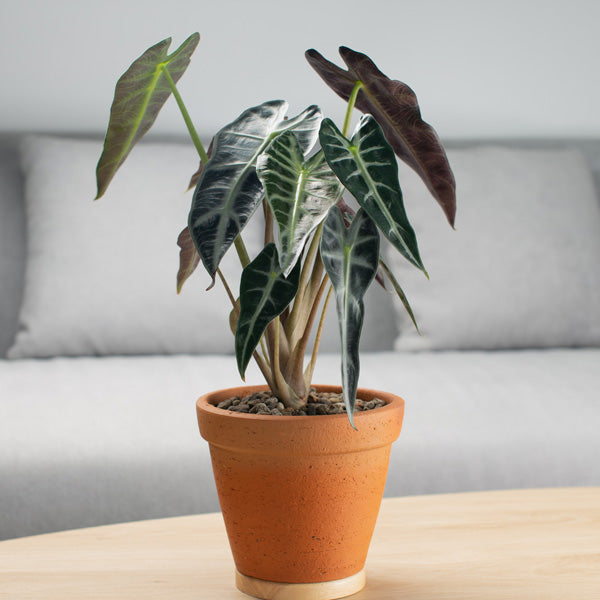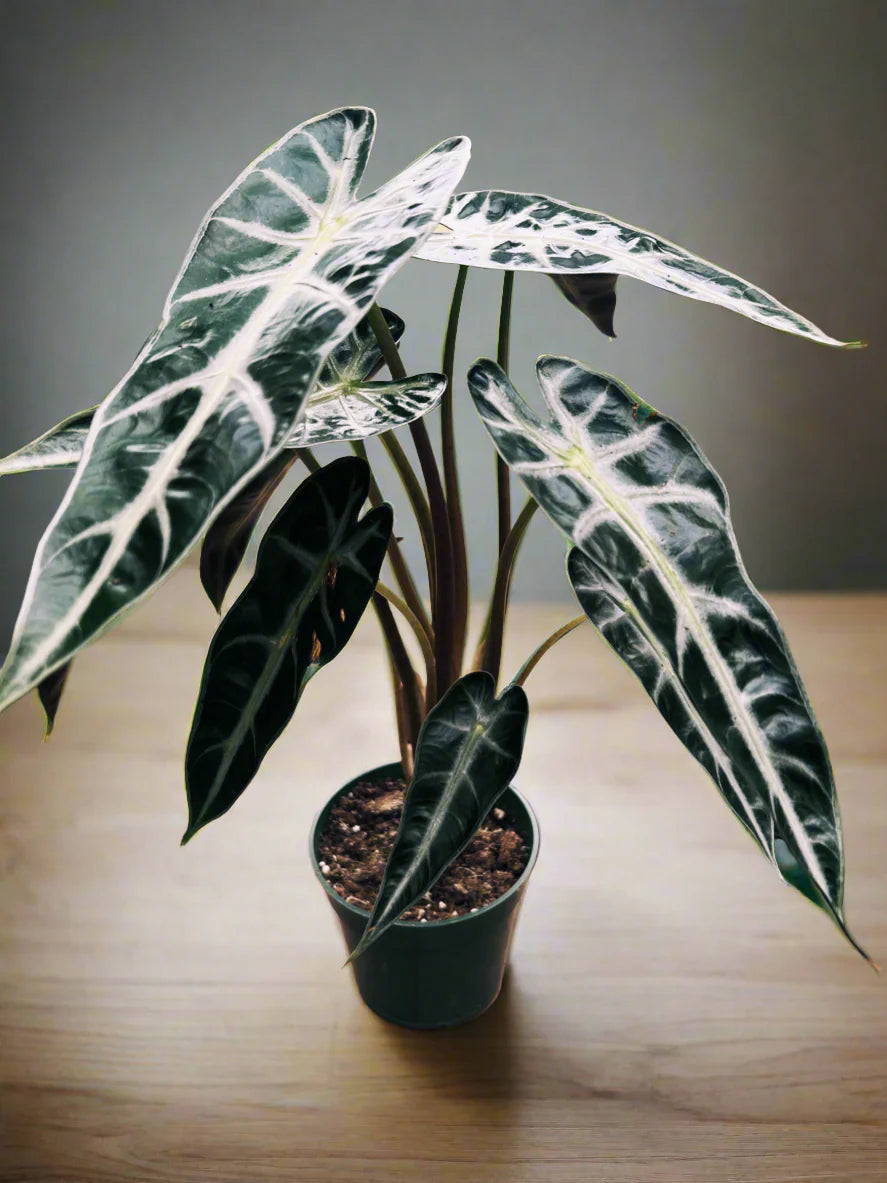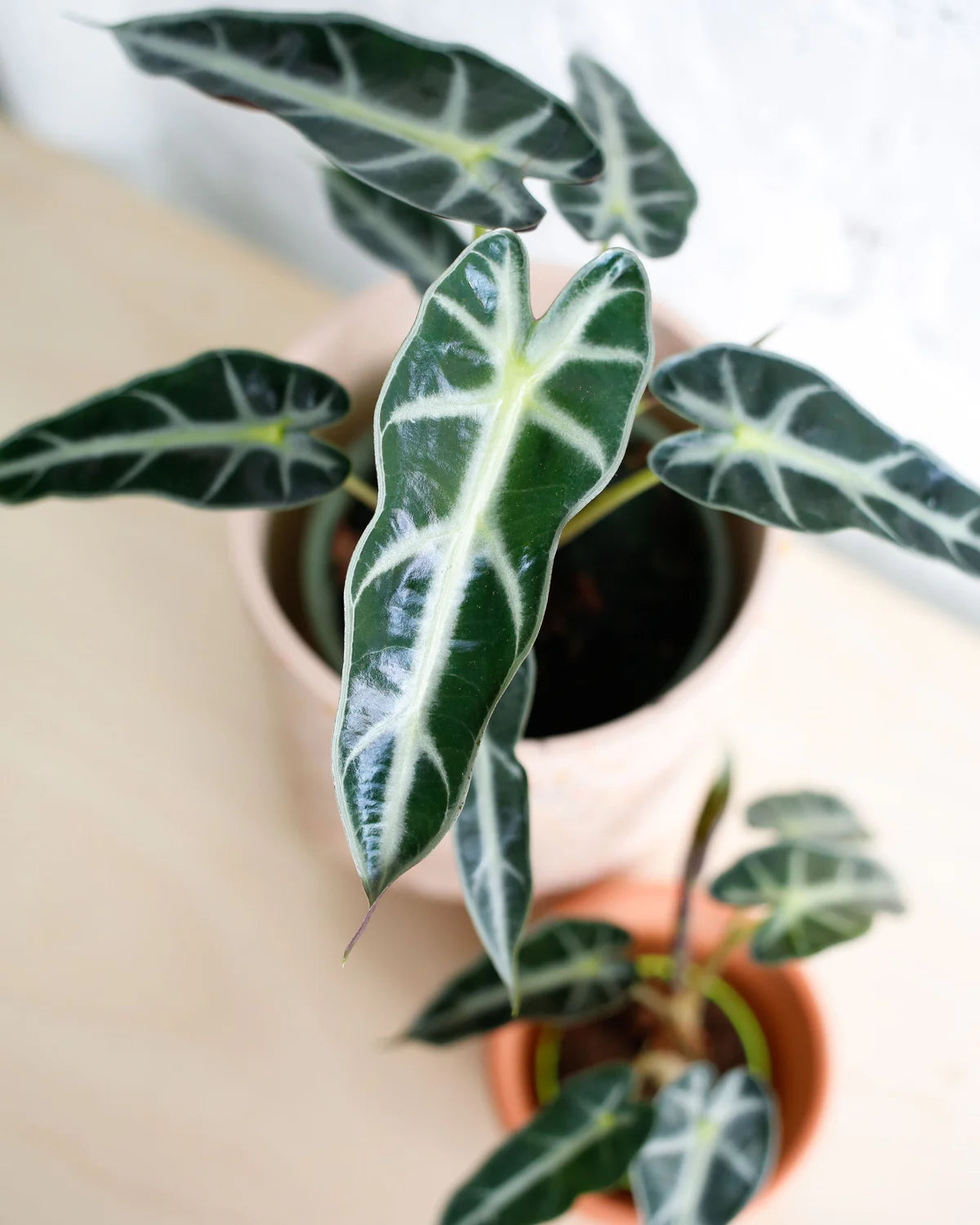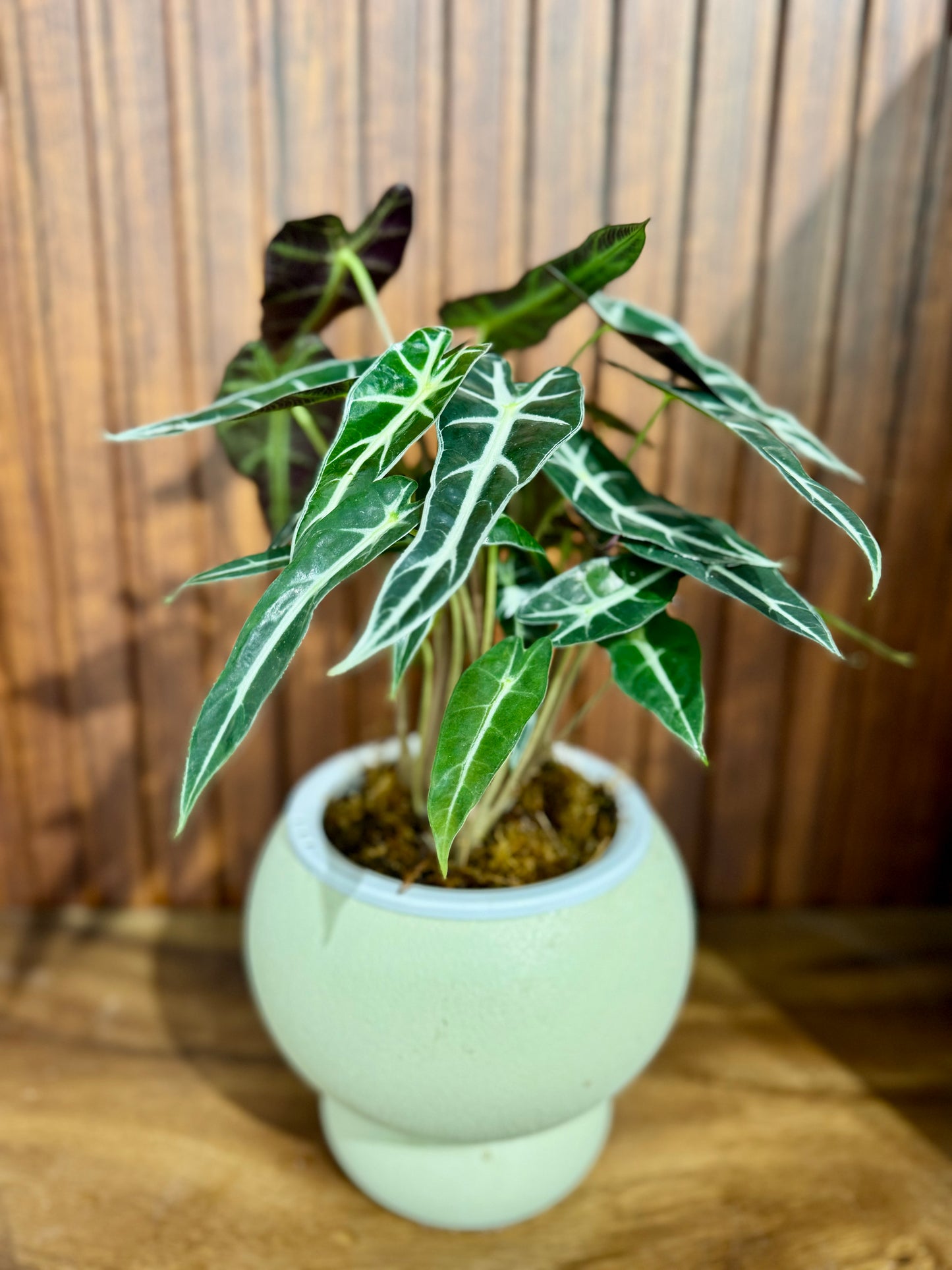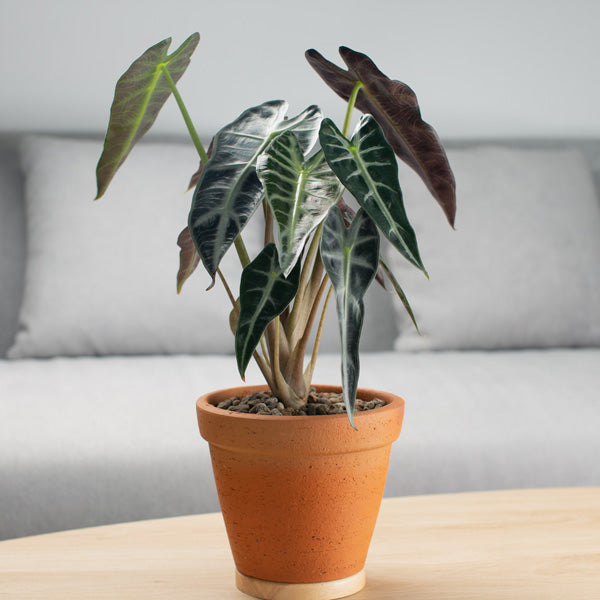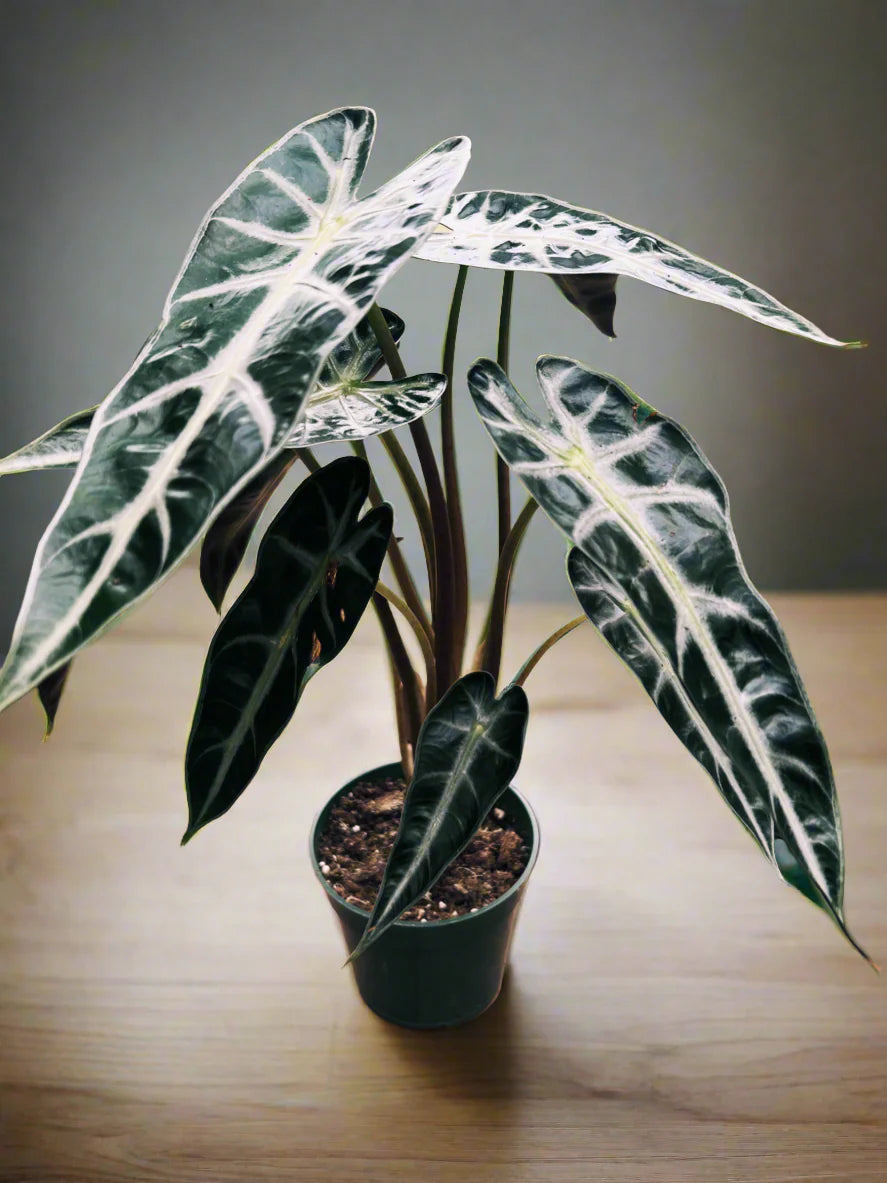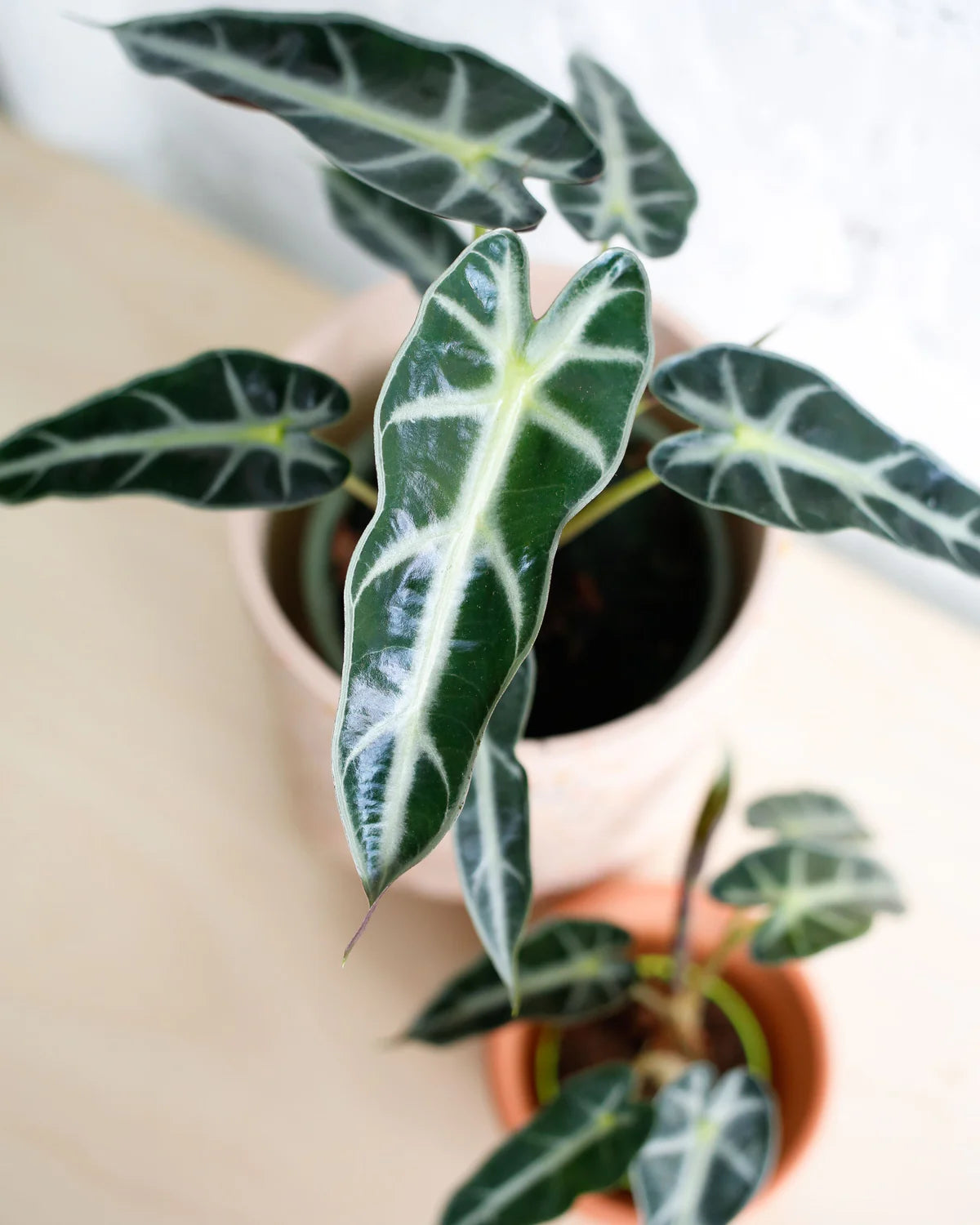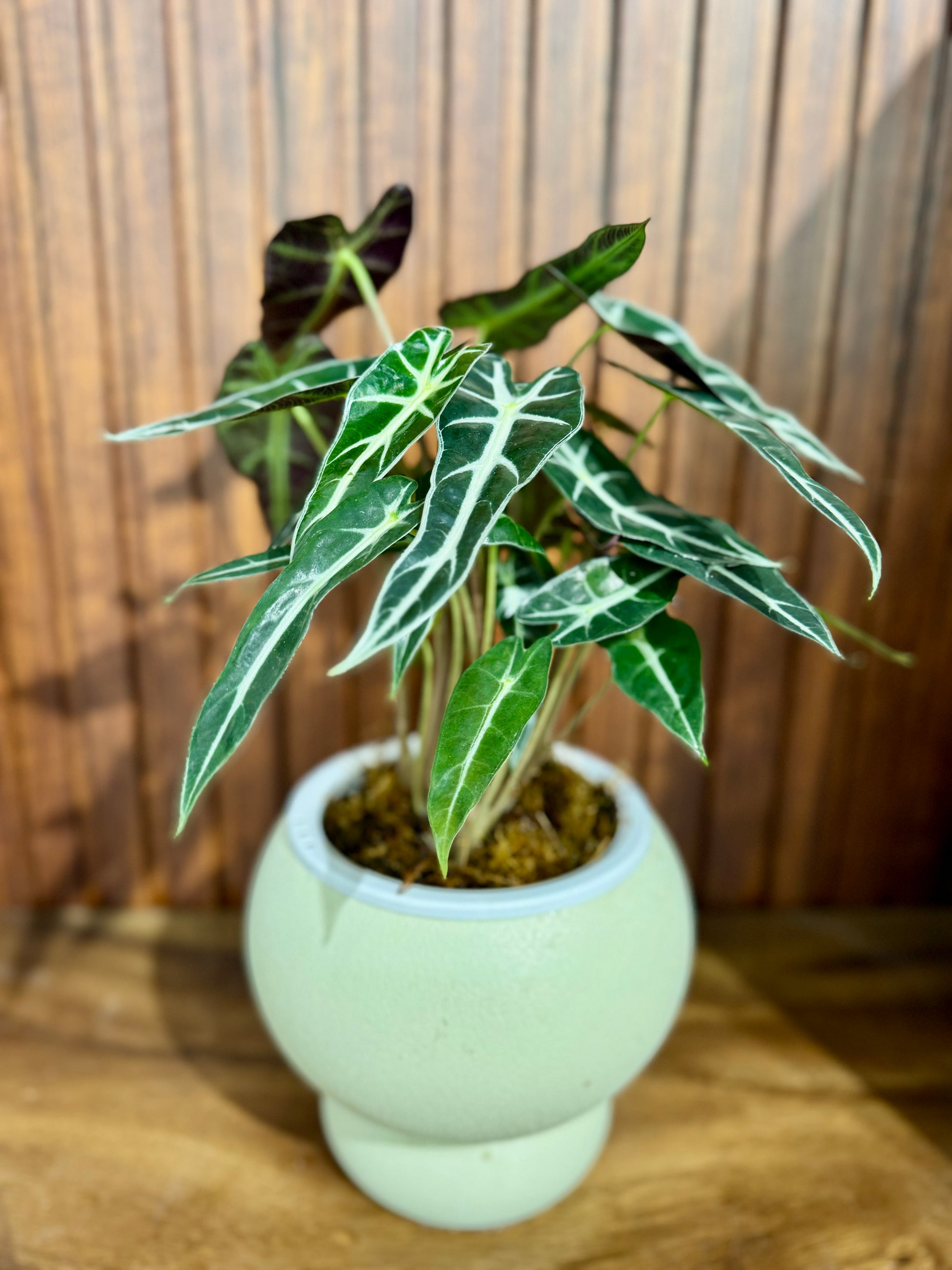Dust Freedom
Alocasia Bambino
Alocasia Bambino
Couldn't load pickup availability
The price of the plants may change and will vary depending on the actual size of the plant at the shop.
The Alocasia Bambino, also known as the Elephant Ear, is a popular houseplant known for its striking, dark green leaves with white or light green veins. While it shares some care requirements with the Alocasia Silver Dragon, there are specific nuances to consider. Here’s a detailed care guide for Alocasia Bambino:
### Description:
- **Scientific Name**: Alocasia x amazonica 'Bambino'
- **Common Name**: Alocasia Bambino, African Mask Plant, Elephant Ear
- **Family**: Araceae
- **Origin**: Hybrid species, with parent plants native to the tropical rainforests of Southeast Asia.
### Care Instructions:
#### Light:
- **Indirect Light**: Prefers bright, indirect light. Avoid direct sunlight, which can scorch its leaves.
- **Artificial Light**: Can adapt to lower light conditions but thrives best with sufficient natural light.
#### Watering:
- **Consistent Moisture**: Keep the soil consistently moist but not soggy. Let the top inch of soil dry out between waterings to prevent root rot.
- **Humidity**: High humidity is essential. Aim for humidity levels of 60% or higher. Regular misting, using a pebble tray with water, or a humidifier can help maintain humidity.
#### Soil:
- **Well-Draining Soil**: Use a well-draining potting mix, such as a blend of peat, perlite, and orchid bark. Good drainage is crucial to prevent waterlogging and root rot.
#### Temperature:
- **Warm Temperatures**: Ideal temperatures range between 65-80°F (18-27°C). Avoid exposing the plant to temperatures below 60°F (15°C) and protect it from cold drafts.
#### Feeding:
- **Regular Fertilization**: Feed with a balanced, water-soluble fertilizer every 4-6 weeks during the growing season (spring and summer). Reduce feeding frequency during the fall and winter when growth slows.
#### Potting and Repotting:
- **Small Pots**: Alocasia Bambino prefers being slightly root-bound. Repot every 1-2 years, or when roots outgrow the pot, using fresh soil to maintain health and vigor.
#### Pruning:
- **Minimal Pruning**: Remove yellowing or dead leaves to encourage new growth and maintain the plant's appearance.
#### Pests and Problems:
- **Common Pests**: Watch for spider mites, aphids, and mealybugs. Treat infestations promptly with insecticidal soap or neem oil.
- **Root Rot**: Ensure proper drainage and avoid overwatering to prevent root rot.
#### Propagation:
- **Division**: The best method of propagation is by dividing the rhizomes during repotting. Carefully separate the rhizomes and plant them in individual pots.
### Special Tips:
- **Consistent Environment**: Alocasia Bambino is sensitive to changes in its environment. Consistent care, including stable temperature and humidity, is essential for its health.
- **Leaf Care**: Clean the leaves regularly to remove dust and help the plant absorb light more effectively.
- **Dormancy**: In some cases, Alocasia Bambino may go dormant in the winter. If the leaves die back, reduce watering and wait for new growth to appear in the spring.
By following these care instructions, your Alocasia Bambino should thrive and add a touch of tropical beauty to your indoor space.
Share
